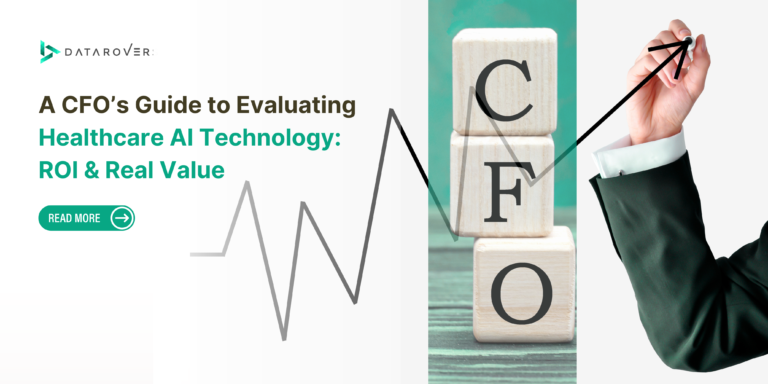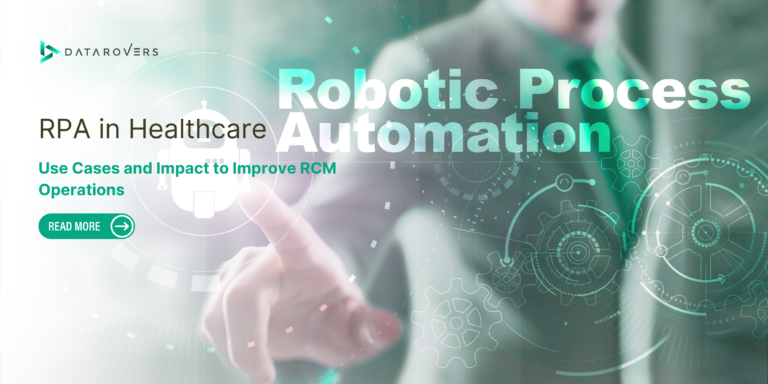Overview
Imagine this: your team spends hours manually sorting through insurance policies, trying to decode the fine print just to determine medical necessity. With policy complexities growing and denials piling up, how much revenue is slipping through the cracks because of administrative delays? What if there were a smarter way to manage policy details, streamline prior authorizations, and reduce claim denials—all while boosting your revenue cycle efficiency? Enter Gen-AI Policy Copilot, the solution that simplifies compliance and drives financial performance.
Well, the answer is GenAI, specifically DataRovers Copilot initiative. However, Policy Copilot is not just a simple general AI like ChatGPT that suffers from hallucinations but a specifically developed genAI chatbot for the healthcare industry. You can consider it a super-powered virtual assistant designed specifically to cut through the confusion and bring clarity to your revenue cycle management (RCM).
We know that when it comes to RCM, there are many other pain points besides the one we mentioned above. In fact, a recent article by the American Hospital Association (AHA) stated that roughly 15% of all claims submitted to private payers are initially denied, which results in hospitals and health systems spending an estimated $19.7 billion annually on appeals and claim resubmissions.
In this blog, we’ll look at the growing need for AI in healthcare as well as its role in payor policy automation software. But wait, there is more; we’ll also look at how Policy Copilot is changing the game when it comes to RCM and helps ensure compliance.
The Growing Need for AI in Healthcare Policy Management Software
In a report by the American Hospital Association (AHA), it was stated that the regulatory requirements for hospitals and other similar healthcare providers have increased by 70% in the last few years. Now, not to exaggerate, but 70% is a very high amount. This no doubt puts a lot of stress on the organizations which are required to comply with the updated requirements. If there isn’t an efficient and effective way to handle these changes, it can lead to delays and the risk of compliance errors.
To elaborate further, Marshall University carried out a study that found that organizations with outdated policies are 30% more likely to experience the aforementioned compliance-related issues – that means it’s bad news for healthcare providers in terms of operational efficiency and patient care.
The fact is that healthcare policies change over time, and as mentioned, sometimes the change is rapid and overwhelming. Manual labor-intensive searching and even regular healthcare policy management software will not cut it any longer. This is where powered automated healthcare systems like Gen-AI Policy Copilot come into play. They offer immense benefits to both insurers and healthcare providers alike.
AI and Payor Policy Automation in Healthcare
Healthcare policy management software integrated with GenAI is modernizing and increasing efficiency in the many aspects of payor policy management. This ensures that healthcare providers are able to conform to new changes in regulations correctly and with minimal disturbance. Let’s look at in detail the benefits it offers:
Hassle free Workflow Management:
Insurance Policy Automation, combined with Gen-AI Policy Copilot, simplifies claims management by enabling real-time collaboration across departments. An example is that of Providence Health, which saved over $18 million using GenAI-powered systems to automate their claims processing – reducing denial rates and streamlining staff workloads. (Experian Health, 2023)
Efficient Handling of Policy Updates:
Since AI-powered tools can carry out analysis on vast amounts of data, it isn’t a problem for it to go through clinical guidelines or regulatory data to alert the organization that its policies require revision.
An example is ChatGPT, which has revolutionized how research and work are done. It has an immense knowledge database, yet when asked a specific question, it gives a relevant and concise answer. The only drawback of GPT is its hallucination problem, which creates irrelevant and incorrect data at times.
However, custom AI-powered systems such as the policy Copilot do not suffer from these drawbacks. This fact alone can minimize the amount of manpower that would be required to keep track of and alert policies that need updating. As we know, the system just doesn’t alert; it also carries out the updating aspect. That means fewer errors when it comes to compliance.
Compliance Backed by Data:
AI systems offer robust data analytics that enables healthcare providers to track policy implementation effectiveness. Organizations using data-driven tools for monitoring policy adherence have reported a 15% average improvement in compliance rates, leading to better patient outcomes and lower liability risks (Healthcare Information and Management Systems Society, 2022).
Additionally, AI can forecast trends and suggest policy changes based on historical data, keeping organizations ahead of regulatory shifts. Being HIIPA compliant and with built-in cybersecurity features, AI-driven Insurance Policy Automation ensures data protection and secure handling of sensitive patient information, safeguarding against breaches.
Informed Decision-Making with Timely Notifications:
Effective policy management requires that all stakeholders are promptly informed and adhere to changes. AI-powered platforms not only improve communication across departments but also provide timely notifications about policy updates. This ensures that everyone is aware of new guidelines, reducing the risk of miscommunication.
Additionally, AI can facilitate better team management by tracking compliance in real-time and offering actionable insights, enabling stakeholders to make informed decisions that improve policy adherence and overall organizational efficiency.
DataRovers Gen-AI Policy Copilot – A Game Changer in Policy Information Management
At DataRovers, we recognize the intricacies of managing healthcare policies, especially for health systems facing challenges with Revenue Cycle Management (RCM) and Denials Management. Our newly developed Policy Copilot bot streamlines healthcare policy retrieval, automating the acquisition of payor policy information to reduce RCM-related administrative burdens. Here are some key functionalities it includes:
User-Centric Design: Our Gen-AI Policy Copilot is designed with ease of use in mind, providing a straightforward and efficient interface for the seamless acquisition of healthcare payor policy information.
Fully Referenced Information: Each and every question is given a correct and structured response with references to policy documents.
Secure and Compliant: Fully Compliant with HIPAA requirements; it is secure; the data stays in your subscription.
Denials Management Support: Provides accurate, referenced policy information to reduce claim denial rates.
Enhanced RCM Integration: Improves efficiency by centralizing policy access, aiding health systems in maintaining consistent compliance by reducing confusion and promoting consistency across the board.
Tailored to Your Needs: Although Policy Copilot has been trained on more than 15000+ payor policy guidelines, it is fully customizable and can be trained on any external payor policies.
Boosted Efficiency and Resource Savings: Automating manual searching of payor policy-related information reduces time sorting through to acquire the correct information, increasing operational efficiency.
Why AI-driven Healthcare Policy Management Software is a Must-Have?
It wouldn’t be wrong to say that the healthcare sector is going through the next step of digital transformation, and that AI is taking the lead on this one. Companies like DataRovers are pioneering this innovation by introducing Gen-AI chatbots specialized for healthcare systems and enterprises.
The simple fact is that with the increase in healthcare regulations as well as changes in policies, the need for improved compliance is paramount. Healthcare providers that do not opt for AI-powered systems, such as the Policy Copilot, risk lagging behind. Traditional methods of sorting and searching are labor-intensive and waste time that could be used to increase productivity and operational efficiency.
In Conclusion
AI is not just a trend; it is a necessary tool for modern healthcare. By adopting solutions like the Policy Copilot, healthcare organizations can revolutionize their approach to the storing and dissemination of policy guidelines.
For more information about how the Policy Copilot can revolutionize your organization’s approach to policy retrieval, please contact us at info@datarovers.ai
References:
American Hospital Association. (2017). Regulatory Overload: Assessing the Regulatory Burden on Health Systems, Hospitals and Post-acute Care Providers. Retrieved from AHA
Marshall University. (2023). Enhancing Healthcare Workflow Efficiency Through AI. Retrieved from Marshall University ETD
Healthcare Information and Management Systems Society. (2022). Impact of Data Analytics on Healthcare Organizations. Retrieved from HIMSS
Experian Health. (2023). Leveraging AI and Automation to Minimize Claim Denials in Healthcare. Retrieved from Experian Healthcare Blog




